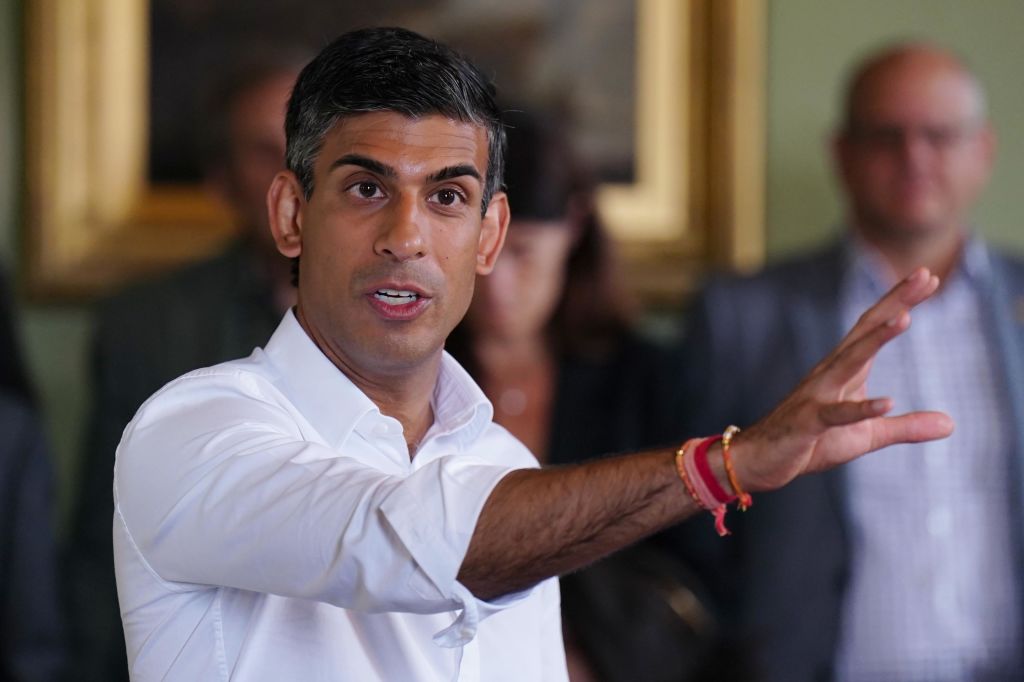Political leaders are like tribal chiefs and one way of assessing their fortunes is by counting up the number of heads they have accumulated from the toppled leaders of rival tribes.
Tony Blair had the shrunken skulls of John Major, William Hague, Iain Duncan Smith and Michael Howard threaded around his waist when he left the stage.
Sunak never gave the SNP leader grounds to caricature him as an arrogant Sassenach
It undoubtedly enhanced Keir Starmer’s authority when Boris Johnson was brought down, though his part in the immolation of Liz Truss soon afterwards was less obvious.
On this basis, Rishi Sunak is entitled to point to a modest enhancement of his political capital via the business of the downfall of Nicola Sturgeon.
Her job was to break up the Union, he was the guy in charge of sustaining it. She has failed and he has succeeded.
And a quick perusal of the circumstances points to the conclusion that while his role in her downfall is by no means the whole story, it is certainly more than tangential.
The Prime Minister’s reaction yesterday to news of Sturgeon’s departure highlighted one weapon he used against her well: being so obviously reasonable, respectful and polite. He never gave the SNP leader grounds to caricature him as an arrogant Sassenach who could be suspected of being in sympathy with the redcoats who once upon a time chased poor Mel Gibson around peatbogs.
Yet he was, in his understated way, completely steadfast in ruling out Westminster giving the First Minister permission to hold another referendum on separatism. To put it in cricketing terms, this was his standard, forward-defensive response to Sturgeon’s hostile bowling.
But there was more to his Sturgeon-thwarting than that. Because when she bowled a loose delivery, as she did with her Gender Recognition Reform legislation, he smashed that bad ball out of the park.
Deploying the Section 35 powers to block this law was something Sunak thought about carefully. There were voices in his inner circle arguing that he should not risk a direct confrontation with the Scottish parliament. He chose not to follow their advice and instead adopted the bolder and more principled stance recommended by his Equalities Minister, Kemi Badenoch.
His wielding of the Westminster veto was not the sole cause of Sturgeon’s troubles on this highly emotive issue – even in its absence the Adam Graham/Isla Bryson rape case would still have hit the headlines and caused the First Minister political difficulties.
But there is no doubt that Sunak’s bold stance – unveiled with customary courtesy and a lack of bombast – made her life much more difficult. It placed the whole trans issue front and centre of Scottish politics, in effect creating a swamp battlefield for Sturgeon onto which she charged, heart ruling head.
Trans policy isn’t the only reason Sturgeon is going either. The Supreme Court’s comprehensive dismantling of her claim to have the right to stage a second referendum was a predictable hammer blow and her notion of using the next general election as a de facto referendum was a sign of her impatience turning to impetuousness.
Add in the usual litany of problems facing any long-serving head of government in tricky economic times – in her case bungled ferry contracts, under-performing public services and claims of financial sleaze in her party – and not even the formidable Sturgeon could see a path to wrenching Scotland out of the United Kingdom.
But in her resignation statement yesterday, there lurked an implied compliment for Sunak. For Sturgeon, who had so skilfully used Boris Johnson’s persona to boost the idea of perennial English insensitivity to Scottish feelings, admitted that she had now become the prime polarising figure.
For the SNP to achieve independence, she said, ‘we must reach across the divide in Scottish politics. And my judgment now is that a new leader will be better able to do this: someone about whom the mind of almost everyone in the country is not already made up, for better or worse; someone who is not subject to quite the same polarised opinions, fair or unfair.’
In other words, she no longer saw a way that she could stitch together a sufficiently broad coalition for separatism to overcome the obstacles in its way. She never thought that when Boris was Billy Buntering his way through the political jungle.
So Reasonable Rishi is entitled to a mention in despatches. He played this opponent well. It is just a shame about all the others.







Comments